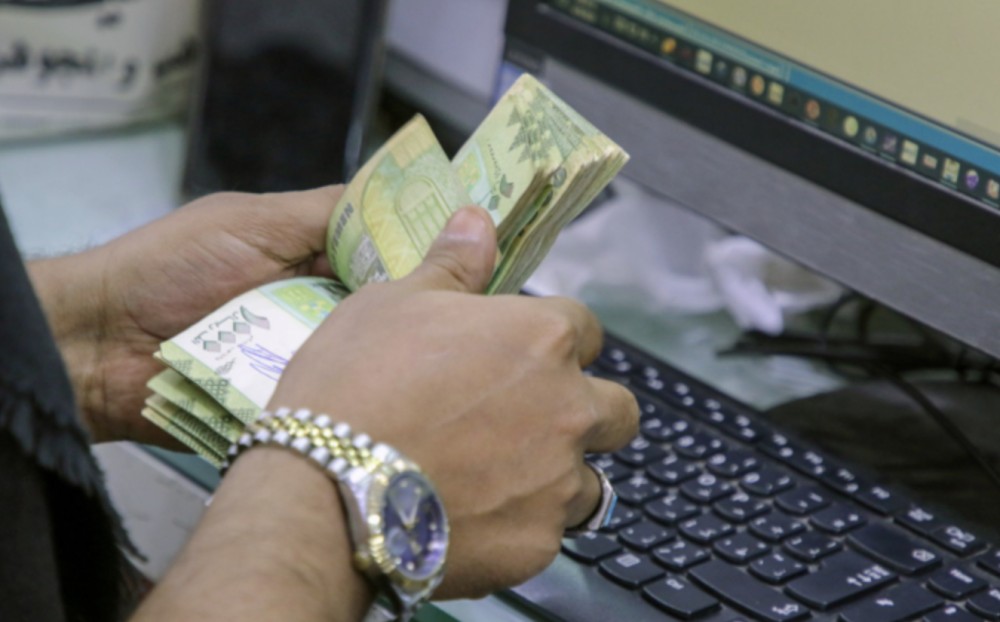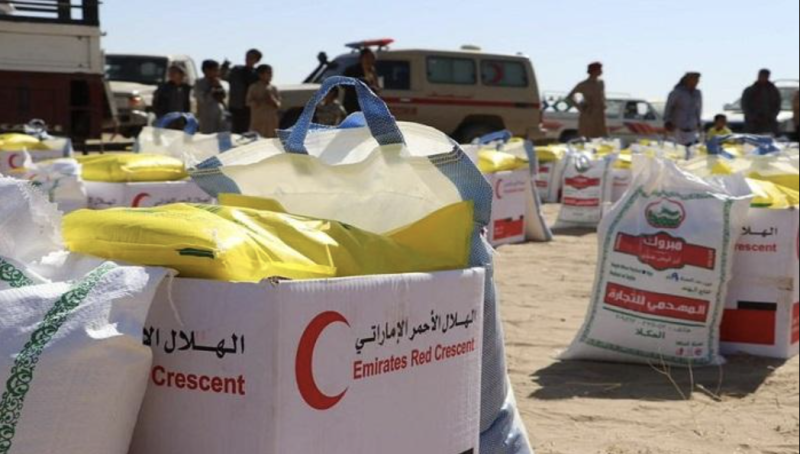Saudi financial aid helps Yemeni riyal rebound


The Yemeni riyal rose against the dollar on Wednesday for the first time in months, less than a day after Saudi Arabia announced $1.2 billion in aid to save Yemen’s economy.
The beleaguered currency jumped from 1,420 against the dollar on Tuesday morning to 1,392 on Wednesday, according to money traders in government-controlled areas.
Yemen’s riyal has been in free-fall for months, amid reports of stalled peace efforts and a halt to crude exports, the country’s primary revenue source.
Several cash injections by Saudi Arabia in the past allowed the riyal to recuperate briefly before relapsing due to political and economic conditions in the country.
Mohammed Al-Jaber, the Kingdom’s ambassador to Yemen, announced $1.2 billion in financial aid on Tuesday to shore up the Yemeni currency, bolster the economy, and help the country pay its public employees, as well as for food and fuel imports.
Yemeni government officials and the public have greeted the Saudi package and thanked the Kingdom for its repeated humanitarian and economic interventions to prevent the collapse of the country.
Rashad Al-Alimi, head of the Presidential Leadership Council, said that Saudi financial aid demonstrates the Kingdom’s firm support for the Yemeni people and their legitimate government.
The assistance will alleviate suffering in Yemen, strengthen state bodies, help in reconstruction, and restore stability and development, he said.
Saudi aid sends a signal that the Kingdom will not abandon Yemen, Al-Alimi said.
“It sends another message to the Houthi militias that the Yemeni people are not alone, and that the moment has come for them to put our people’s interests ahead of their leaders’, to listen to the voice of reason, and to align themselves with the long-awaited alternative for just peace,” Al-Alimi said on Twitter.
He urged the Houthis to lay down their arms and embrace peace efforts to end the war.
Other Yemeni officials, including presidential council member Abdullah Al-Alimi Bawazer, said that it is now the government’s responsibility to effectively spend the Saudi aid, and implement its economic policies to revive the economy and stabilize the Yemeni riyal.
“The government will bear a dual obligation to rationalize spending, eliminate imbalances, and provide a transparent model that makes this and other forms of assistance effective and efficient, reflecting well on all Yemenis,” Bawazer said on Twitter.
The Yemeni government has been complaining for months that it might be unable to pay public employees in areas under its control or meet other obligations, such as food imports, due to Houthi attacks on oil facilities and the militia’s economic war, which includes a ban on gas from Marib and goods coming from government-controlled areas.
Prime Minister Maeen Abdul Malik Saeed said his government will now be able to resolve the budget deficit, public employee payments, devaluation of the riyal, and food insecurity.
“We extend our gratitude to the leadership of the Kingdom for its unwavering support of Yemen’s government and people, as well as for its economic assistance to alleviate the suffering of our people and strengthen our national economy, which the terrorist Houthi militia is attempting to destroy,” he said.
Yemen observers say that Saudi financial assistance has thwarted Houthi efforts to stir mass opposition to the government.
Mohammed Al-Mekhlafi, a Yemeni political analyst, said that by attacking energy facilities, the Houthis intended to force the Yemeni government into bankruptcy and prevent it from paying public employees, thereby inciting a public uprising.
“The Houthis utilized drones to block the government from exporting oil, thus preventing it from performing administrative and economic functions. As a result, civilians would rise against the government as their cells would cause chaos in government areas,” Al-Mekhlafi said on Twitter.

By Mohammed Al-Awadhi Over the course of ten years, the United Arab Emirates has emerged as a key actor in supporting Yeme…

Washington – The U.S. Department of State announced that Saudi Foreign Minister Prince Faisal bin Farhan Al Saud held a phone call with U.S.…

Berlin – Germany has expressed deep concern over the recent escalation in southern Yemen, warning that the situation poses serious risks to r…